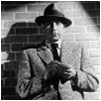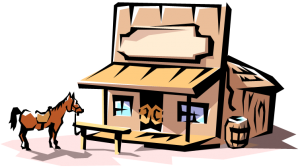 One of the things that intrigues me about competitive intelligence is the types of relationships that are required to be successful. Intuitively I think and empirically I know that people matter most. We get assignments from them, ask them to tell us their fears and deliver implicit commentary on their performance even as we report on the competitive environment.
One of the things that intrigues me about competitive intelligence is the types of relationships that are required to be successful. Intuitively I think and empirically I know that people matter most. We get assignments from them, ask them to tell us their fears and deliver implicit commentary on their performance even as we report on the competitive environment.
I get it that they need specific information about competitors. I also know that clients or managers want to increase their confidence in their decision making. And, commonly they want to feel that they won’t be blindsided. Most of all they want help to make wise choices about the future that will reflect well on their leadership.
So what role should I play? Information source? Critic? Counselor? Oracle? Or, maybe, friend?
I can hear you through the computer right now (disagreement and skepticism transmit well). Yes, you think that the first 3 or 4 possibilities often fit. But, definitely not the “friend” role. That is entirely too soft a description that no client or senior manager would provide in a job description. They want bottom line results and value those that directly (directly!) contribute. Tangible, measurable and preferably quick results would be their highest goal.
Yet, I wonder about that. Not understating the need for results and concrete benefits, I think that we sometimes miss the human element of leadership and what it needs most.
Many times leaders are trying desperately to keep ahead of the game. There are rivalries within the company which are threatening their position. The people that work with them are constantly angling for attention and favor. Competitors, of course, would be gleeful if they failed. The Board is constantly evaluating their performance and it is easy to understand that most won’t advance. It’s a jungle and thriving within that jungle is tough. One needs help but where will it come from?
There is not one answer to that question.
Read the rest of this entry
 When I was growing up, there was a famous TV show named Dragnet. The show had evolved from a radio show of the same name and was famous for (at the time) what seemed like real life depictions of crime and the police work that followed. In retrospect, the scripts were pretty lame and the acting was exceptionally dry.
When I was growing up, there was a famous TV show named Dragnet. The show had evolved from a radio show of the same name and was famous for (at the time) what seemed like real life depictions of crime and the police work that followed. In retrospect, the scripts were pretty lame and the acting was exceptionally dry. One hundred and twenty years ago the scene in the American West would have been familiar. The scorching air would have been thick and dusty. The only street through the town of rickety boarded buildings would be crowded with cowboys and their horses. The one refuge from the oppressive conditions was the local saloon. And that was where you found all manner of folks. The tired cowhands, the frontier entertainers and the bad guys would be there. Everyone knew that the bad guys always came to the saloon looking for trouble. It was not a place for the unprepared or naïve because they were easily recognized and exploited. Winning for the bad guys was dominating the saloon.
One hundred and twenty years ago the scene in the American West would have been familiar. The scorching air would have been thick and dusty. The only street through the town of rickety boarded buildings would be crowded with cowboys and their horses. The one refuge from the oppressive conditions was the local saloon. And that was where you found all manner of folks. The tired cowhands, the frontier entertainers and the bad guys would be there. Everyone knew that the bad guys always came to the saloon looking for trouble. It was not a place for the unprepared or naïve because they were easily recognized and exploited. Winning for the bad guys was dominating the saloon. How many times have you been asked about competitive intelligence? Someone sincerely wants to know what you do and how you might be helpful so they ask the obvious.
How many times have you been asked about competitive intelligence? Someone sincerely wants to know what you do and how you might be helpful so they ask the obvious.